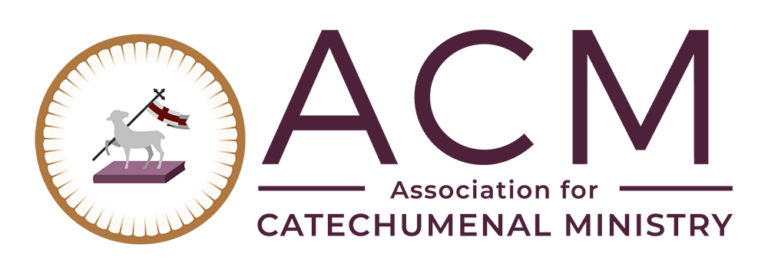Discernments are the important road signs on the highway of RCIA.
They help the participant to reflect on where they started, where they see God calling them and where they want to be. Hopefully the answer to the last 2 points is… Heaven. These important meetings also give an opportunity for the Coordinator (usually the person conducting these) to re-visit any areas of concern that came up during the all-important intake appointment.
Those involved in the ministry of RCIA are not just there to present the materials. If that was the case, then we could just hand them a book and schedule a test at a future time. The Rite Book is always the best place to begin. In addressing the Rite of Acceptance and Welcoming, we see in RCIA 42:
“The prerequisite for making this step is that the beginnings of the spiritual life and the fundamentals of Christian teachings have taken root in the candidate. There must be evidence of the first faith…of an initial conversion and intention to change their lives and to enter into a relationship with God in Christ.”
RCIA 43 goes on to say:
“Before the Rite is celebrated, therefore, sufficient and necessary time… should be set aside to evaluate and, if necessary, to purify the candidates motives and dispositions.”
Reading on, we actually see in no uncertain terms that those involved “have the responsibility for judging the outward indications of such dispositions”. So, how do we – who live in a culture that tells us we shouldn’t “judge” – do what Holy Mother Church has asked?
Looking at the different stages of RCIA helps us to see why discernments are important and leads us in this task.
Stage 1: Inquiry
This time includes the initial phone call and meeting. The new inquirer fills out an information sheet. The real-life issues (valid marriages / annulments / co-habitation / chastity) that will be dealt with during conversion become apparent and should be discussed in an open and charitable manner. The coordinator is basically saying, “These are some issues that would be resolved should you want to be Catholic”. Most importantly, we are there to help with referrals to a priest or tribunal aid, or, to give materials that address the issues.
Stage 2: Determining Readiness for the Rite of Acceptance / Welcoming
Near the end of the time of Inquiry, each participant has their first discernment.
First, go over the intake form and make sure all the information is correct (any changes in contact information or personal status?). Then, explain what a discernment is (the statement at the beginning of this article could work). Using a question form (the RCIA Leader’s Manual contains one), gently ask each question and write down their answer. When a problematic issue arises, discuss it with them. There is always a good and holy option. Use this opportunity to reinforce what they have learned in Inquiry. If they find they have been challenged by the Church’s teaching on contraception, this is a good time to discuss why Catholics must be faithful. In discussing how they pray, ask what their daily prayer life looks like and explain how to make a morning offering. Perhaps ask who they are praying to (God the Father, Jesus the Son, the Holy Spirit, the Blessed Trinity?). Also important is if they see themselves turning away from sin and have a desire for virtue. Lastly, bring out the Rite Book (the copy published specifically for the liturgy is so beautiful) and show them the Rite, going over each part. Slowly read each statement said during the “signing” and conclude by asking them if they feel they are prepared to go through this Rite.
The most important aspect of discernments is that not everyone is automatically ready for the Rite of Acceptance/Welcoming. When done well, the participant comes to decision on their own. While most may be ready, some may want more time in Inquiry or may decide that this isn’t the path they want to take. One should also be prepared to discuss when a person needs to be guided to wait. If there are obvious barriers (no “intention to change their lives and to enter into a relationship with God in Christ” – RCIA 42), then they need to stay in Inquiry. It helps to remember that the goal is heaven. Since sin keeps us from that eternal happiness, it becomes easier to see why this process is important.
Stage 3: Discernment for the Rite of Election / Call to Continuing Conversion
This discernment looks similar, with the exception that the participants are “expected to have undergone a conversion in mind and in action…” RCIA 120. They must decide to live a Catholic way of life and desire the Sacraments (specifically the Eucharist). The previous meetings lay the groundwork for this discernment, and there should be few surprises.
While discernments are not easy and some may wish to not discuss difficult issues, we are called to speak the truth in love. We live in a time where sin is seen as normal and acceptable, but Pope Benedict’s third encyclical, Charity in Truth (Caritas in Veritate), calls us to plant our feet against the storm and love enough to help those whom God has brought to our Parish RCIA process.






